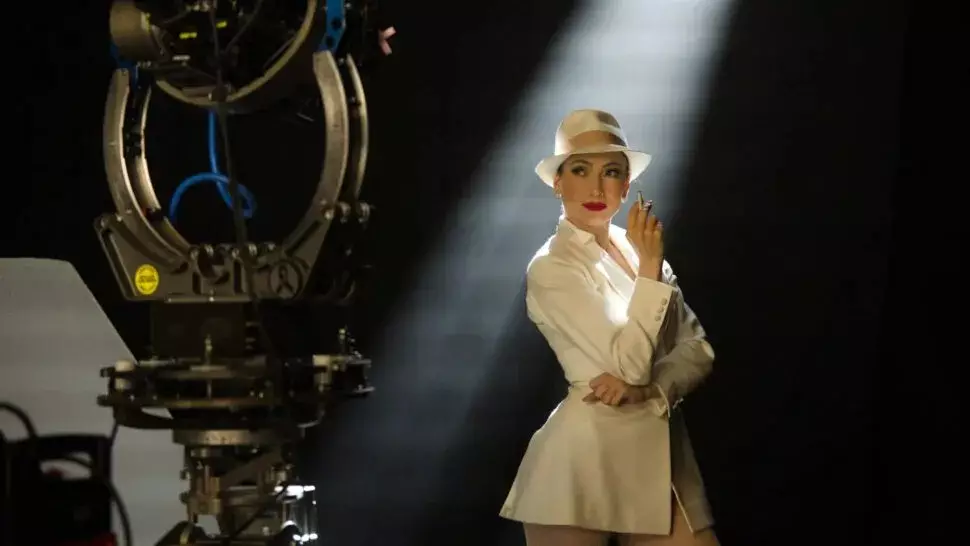In an era dominated by franchises and sequels, Bill Condon’s “Kiss of the Spider Woman,” featuring Jennifer Lopez, marks a daring endeavor that reshapes how we view musical cinema. Debuting at Sundance, it turned heads and ignited conversations, leading to its acquisition by Roadside Attractions, Lionsgate, and LD Entertainment. With a fall release date strategically aligned with awards season, expectations are sky-high. This reimagining of Manuel Puig’s 1976 novel, intertwined with the dramatic backdrop of Argentina’s 1980s dictatorship, offers a stark reminder that when art intertwines with social issues, it invokes an emotional resonance that mainstream blockbusters often fail to achieve.
All-Star Cast, All-Heart Performances
One cannot overlook the trio at the helm of this production: Tonatiuh, Diego Luna, and the ever-majestic Jennifer Lopez. Condon’s deliberate focus on character development breathes life into Molina (Tonatiuh) as he captivates his cellmate Valentín (Luna) with stories steeped in cinematic nostalgia. This dynamic is enriched by Lopez, who channels the spirit of Aurora/Ingrid into a performance that is both vibrant and poignant. Festival reviews suggest that audiences are not merely spectators; they are participants in a transformative experience. The colorful song and dance routines, embroidered with emotional depth, are poised to revolutionize the musical genre.
Emotional Authenticity in Storytelling
At the core of “Kiss of the Spider Woman” lies an urgent narrative that challenges traditional storytelling in the genre. The notion of a gay prisoner recounting tales of love and loss amidst a repressive regime is anything but trivial. Therein lies the power of musicals: when done correctly, they possess the unique capability to address profound societal issues while also captivating the audience through melody and movement. Condon’s adaptation asserts that art can indeed be a form of resistance—a poignant commentary on today’s socio-political landscape.
A Musical for the New Generation
The incorporation of Kander and Ebb’s score, combined with modern cinematic techniques, strives to engage younger audiences who gravitate towards visual and auditory spectacle. The original Broadway musical was a culmination of diverse artistic influences, setting a high bar for any adaptation. Lopez and Condon’s choice to elevate the emotional stakes of the musical numbers gives this version an edge; it aims to resonate with millennials and Generation Z, not simply as an homage to the past but as a relevant commentary on contemporary issues.
Addressing the Awards Buzz
The opportunistic timing of the film’s release should not be overlooked. With awards season on the horizon, a substantial eight-figure marketing budget indicates that the film’s backers are serious about positioning “Kiss of the Spider Woman” as a leading contender. Condon’s pedigree, notably his Oscar win for “Gods and Monsters,” suggests that the industry respects his artistic sensibility. The confidence shared by the co-presidents of Roadside Attractions regarding the film speaks volumes; it indicates that they too believe this will be a cinematic treat deserving of accolades.
Challenges in the Musical Terrain
However, even with all the buzz, there are inherent challenges in delivering a tight musical narrative—particularly one that intertwines complex themes of sexuality and political unrest. The risk lies in balancing the accessibility of a commercial musical with the depth of its source material. For Condon, the key will be to remain authentic while appealing to a broader audience. This endeavor demands not just technical excellence but also an emotional honesty that can elevate the entire cinematic experience.
With its ambitious narrative and formidable cast, “Kiss of the Spider Woman” has the potential to re-establish the musical genre as not merely escapism, but also a vital and relevant form of storytelling. The gamble to weave together poignant themes of love, sacrifice, and hope against the backdrop of a harsh political reality could set a new precedent for future adaptations. As we anticipate its release, one can only hope that it lives up to the monumental expectations set forth by its predecessors while carving its own niche in the landscape of modern cinema.

